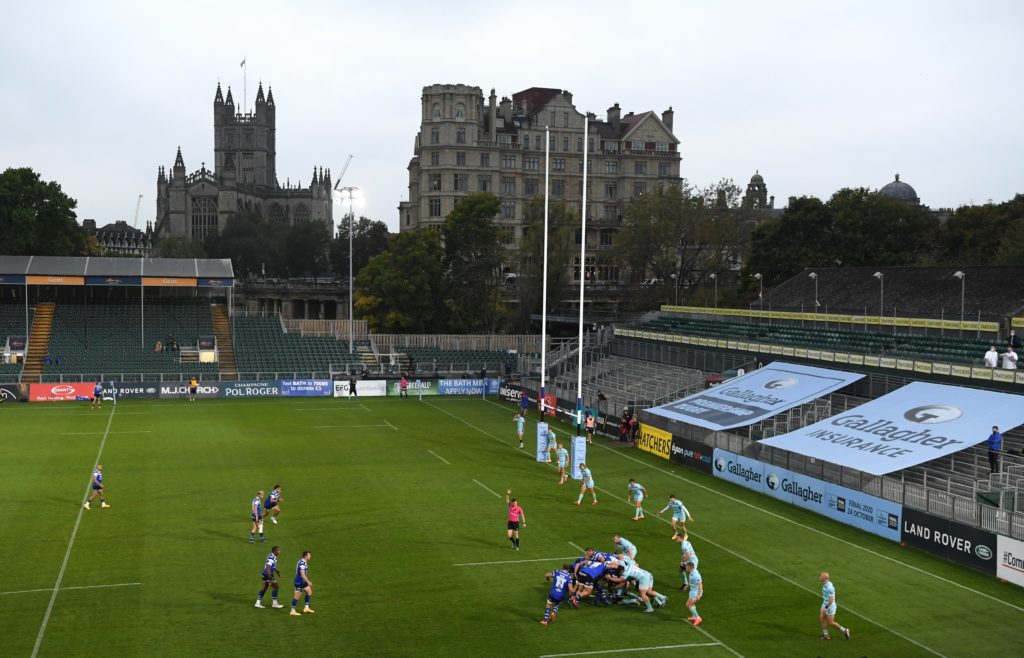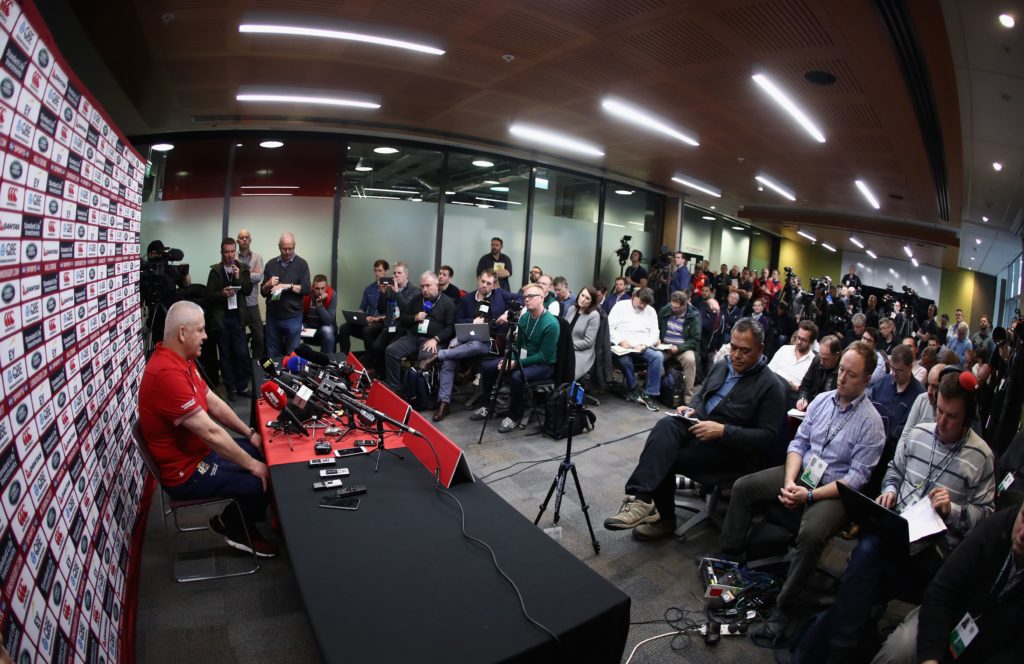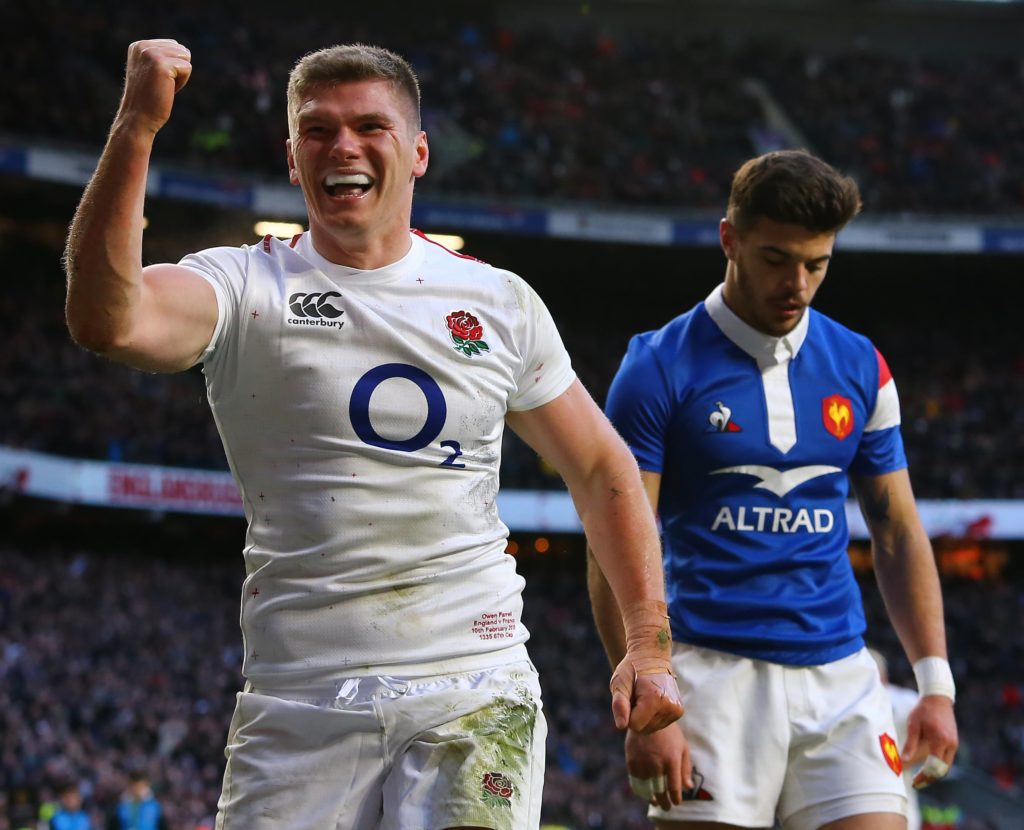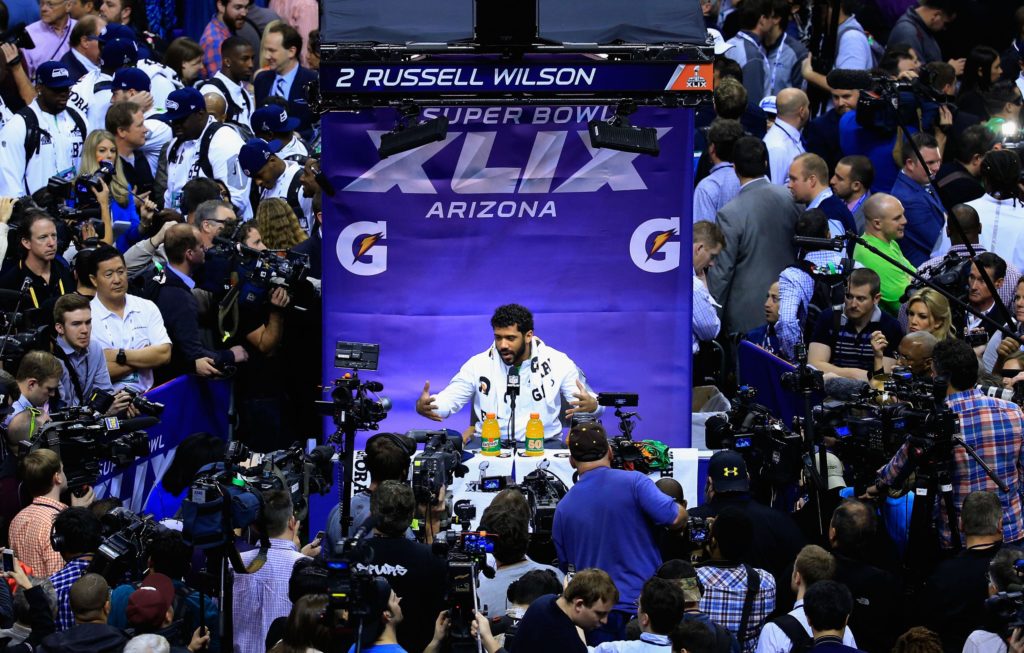There is a phrase familiar to most rugby reporters who covered the English Premiership in the noughties. It is simply “before you ask, the answer is ‘no’”.
It refers to a post-match moment when reporters request to interview a player of note for their follow-up story. The club media manager is then, under Premiership Rugby rules (don’t laugh), meant to oblige. It is basically a win-win for media and club. An easy interview opportunity for the media and free PR and marketing for the club at next to no effort. What’s not to like?
Normally the man-of-the-match is the obvious choice to call upon but in Newcastle Falcons’ case in the early noughties, it was always “can we speak to Jonny?” Always, always Jonny.
A story did the rounds [strongly refuted by the gentleman in question] that the Newcastle Falcons press officer at the time, an affable, fiercely loyal club man fundamentally disinterested in the stress caused to reporters whose desk had flown them 700-miles for three lines of quotes from Jonny Wilkinson but were instead offered 10 minutes with Micky Ward, walked into the Kingston Park press room after one match and before a request could be made, stated; before you ask, the answer is ‘no’.
It may have been apocryphal although several seasoned reporters swear blind it actually happened.
Whatever, the perception stuck that English rugby’s poster boy was essentially off limits to the media and the result was that no one won. The clamour for Jonny went up, reporters spun interviews, Jonny retreated into his shell. Fans didn’t hear the stories they craved. Newcastle Falcons completely failed to capitalise on the most marketable player to emerge from the sport since Jonah Lomu. What the sport would do for him now.
As a commercial industry, if you can’t reach your audience, you lose relevance.
Over time, “before you ask, the answer’s no” became a clarion call for professional rugby’s failure to embrace the media and capitalise on the myriad marketing opportunities afforded since professionalism blundered its way into existence in 1995. Professional in name but amateur in practice, professional rugby clubs – where alpha male directors of rugby generally hold an unhealthy degree of control and power – has always been wary, suspicious and resentful of intruding eyes.
Newcastle were absolutely not alone and rugby union’s failure to truly engage smart, young dynamic marketeers continues to suffocate it. As a commercial industry, if you can’t reach your audience, you lose relevance.

Where progressive forward-thinking marketeers were needed, cap-doffing “yes” men – essentially fans with laptops and a key – were employed. Where strategy was craved, insularity and protectionism prevailed. In a fledgling sport which cried out for creative marketing, fresh ideas, new perspectives and personalities, conformity and grey men were created. In fact, Newcastle were not even the worst. I won’t even start with Northampton Saints in the first 20 years of professionalism.
In professional rugby union’s conflicted and controlling culture, being accused of being a maverick or free thinker is about as bad as it gets.
At least Saints have finally changed tack now with the innovative and open-minded former England team media manager Tim Percival looking to open up the club in every sense. Saints’ decision to allow a fly-on-the-wall documentary team into the club is both welcome and forward-thinking. Living with the Lions (the first one, not the rest) did more to engage a generation of rugby fans than a million crap gifs or cheap shot tweets (see Sale Sharks Twitter for details) could ever achieve. Saints model – and Exeter Chiefs – of openness and transparency should be contractually obligated by Premiership Rugby. Don’t hold your breath.
“Before you ask, the answer is ‘no’.”

The problem for the ultimate team game that rugby union is, is that media coverage distorts and can inflate egos. Often it generates negative and sometimes unfair headlines. It can affect squad dynamics, annoy a controlling coach and worst of all, it can lead to a player becoming “too big for their boots”. In professional rugby union’s conflicted and controlling culture, being accused of being a maverick or free thinker is about as bad as it gets. Woe betide any player actively seen to seek the limelight. Having an opinion gets you nowhere in English rugby union. Just ask Danny Cipriani. Coaches are king and the media can jog on.
Many Premiership clubs have opted for safety first and an almost open hostility to the rugby media.
Those problems should be seen as a tiny price to pay for the free advertising received in return. Many Premiership clubs have opted for safety first and an almost open hostility to the rugby media. It has been to the detriment of the sport as a viable commercial industry and the penny may be dropping too late.
“Before you ask, the answer’s no.”
Like it or not, just as with every other professional sport, rugby’s revenues depend largely on advertising and sponsorship. The media is its lifeblood. No media means no advertising and no advertising – especially in this grim Covid world of no crowds – means next to no revenue.

English professional rugby in its wisdom has attempted to suffocate, control, suppress, deny. And with that approach has seen countless millions of pounds lost in advertising revenue, and a generation of players denied the opportunity to maximise their profile through media opportunities. It’s created resentment on both sides.
Something has to change fast if it is to stand a chance in the congested global market.
The clubs are not solely to blame. Headlines can be cheap and misleading and quotes occasionally taken out of context. But if the relationship is not repaired urgently, what should be a symbiotic relationship will prove fatally toxic.
Like it or not, just as with every other professional sport, rugby’s revenues depend largely on advertising and sponsorship. The media is its lifeblood.
Until professional rugby accepts it is part of the entertainment landscape, completely banishes directors of rugby from the media decision-making process, empowers press officers and enables true coverage of the sport, it is destined to wither. And that’s before you factor in Coronavirus. The signs are not promising.
There aren’t many things we currently look across the Atlantic enviously at these days but the access provided to journalists ahead of the NFL Super Bowl final is light years ahead of anything rugby union has ever even countenanced. Every player and member of backroom staff on both sides is contractually obliged to speak publicly in the week before the game. The media is given unfettered access and, almost universally, respond with positive coverage. In English professional rugby, the very idea would be laughed out of town just as the idea of publishing player’s salaries to avoid salary cap cheating and strictly limiting contact in training to minimise concussions and other severe injuries were laughed out of town. Hmmm.

In football, think of how progressive England manager Gareth Southgate’s approach was to the media ahead of his team’s 2018 World Cup campaign when all players were put up to speak and encouraged to speak openly and honestly about their lives. The positive coverage it generated was unprecedented. A new audience was engaged. Fans want characters, not Mogadon media trained speak-your-weight-machines as the Sun’s legendary former rugby correspondent Tony Roche used to describe today’s monosyllabic play-it-safe rugby players.
Recently the excellent Alan Dymock wrote an article in Rugby World which asked “Does rugby need superstar names to challenge the global market?”.
It may as well have asked “Does professional rugby need a total overhaul of its media policy and culture of dis-engagement in order to stand a cat in hell’s chance of ever being commercially viable?”
Before you ask, the answer is “yes”.
If you’ve enjoyed this article, please share it with friends or on social media. We rely solely on new subscribers to fund high-quality journalism and appreciate you sharing this so we can continue to grow, produce more quality content and support our writers.



Comments
Join free and tell us what you really think!
Sign up for free